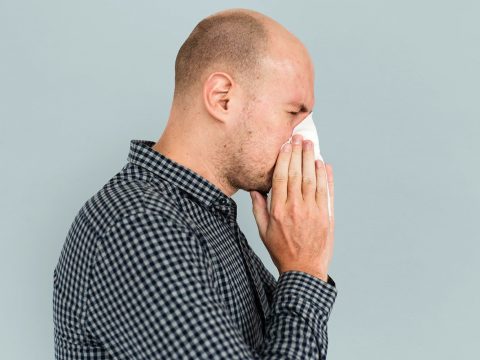- 979-485-9287
- office@bvallergy.com
-
 979-251-7804
979-251-7804
Oak Season Blues: Are Your Allergy Meds up to the Task?

Allergy Anxiety: How It Affects Quality of Life
March 13, 2024
Food Allergies vs. Intolerance: What’s the Real Culprit?
April 5, 2024Feeling the sniffles, sneezes, and itchy eyes as spring blooms? If you’re in Texas, especially around Austin, you’re likely facing the wrath of oak season allergies. And it’s time to take a stand. In this blog, we’re diving into the nitty-gritty of early spring allergies (particularly oak allergies), helping you ensure your treatment plan and allergy meds are up to the task. So, before those pollen particles send you running for cover, load up your medical arsenal and stay one step ahead of those pesky allergens!
Understanding Oak Allergies
For many Texans, spring’s arrival isn’t all sunshine and flowers. Blame it on the mighty oaks! Oak trees are prevalent in Texas, and they release copious amounts of pollen during spring, triggering allergic reactions in susceptible individuals. Symptoms of oak allergies include:
- Sneezing
- Itchy and watery eyes
- Nasal congestion
- Asthma exacerbation
While spring is meant to evoke feelings of renewal and hope, it can quickly turn into a sneezy, itchy ordeal if oak allergies catch you off guard. This makes observing pollen forecasts as crucial as minding your meds. According to local allergists, oak pollen counts soar during spring, causing a surge in allergy symptoms among residents. Allergy experts recommend staying indoors when pollen counts are high. And if you absolutely need to go out, always have your meds with you, which takes us back to the question…
Will Your Allergy Meds Cut It?

You’ve loaded up on antihistamines and nasal sprays, but let’s see what options experts would recommend to level up your allergy game. While common allergy medications can help with symptoms, they might not tackle the core issue. And when oak pollen peaks, your go-to remedies might not be up to snuff. Let’s break down some common allergy meds and see how they measure up:
-
Antihistamines
These drugs block histamine, the chemical responsible for allergy symptoms like sneezing and itching. Over-the-counter options like loratadine, cetirizine, and fexofenadine may provide relief, but they might not be enough when oak pollen levels shoot up.
-
Nasal Sprays
Corticosteroid sprays like fluticasone and triamcinolone help reduce inflammation in the nasal passages, easing congestion and sneezing. However, they might take a few days to kick in fully, so they might not provide immediate relief during peak pollen season.
-
Decongestants
These medications, available in oral or nasal spray forms, help alleviate swollen nasal passages, temporarily reducing congestion. Pseudoephedrine is a common oral decongestant, while oxymetazoline is a popular nasal spray option. Using nasal decongestant sprays too frequently can lead to rebound congestion, necessitating moderate use.
-
Eye Drops
For itchy, watery eyes caused by oak allergies, antihistamine eye drops like ketotifen or olopatadine may provide relief. They work by blocking histamine receptors in the eyes, alleviating symptoms.
When assessing the effectiveness of your allergy meds, consider their potency, onset of action, and potential side effects. If your current regimen isn’t cutting it, it might be time to consult an allergist for a treatment plan tailored to your oak allergy symptoms.
How to Deal with Pollen
Ready to beat the pollen threat? Here’s how:
- Stay indoors during peak pollen hours, especially early mornings and evenings.
- Close windows and use air purifiers with HEPA filters to reduce indoor pollen exposure.
- Opt for a saline nasal rinse to flush out allergens from your nasal passages.
- Wear a mask when doing outdoor activities to minimize inhalation of pollen particles.
How to Cure Pollen Allergies
Can seasonal allergies ever be cured? While there’s still no medical miracle to make them disappear forever, a promising treatment known as allergen immunotherapy (allergy shots) addresses allergies at its core and provides long-term relief.
Allergy Shots

Typically administered like vaccines with gradually increasing doses, these injections expose your body to small, controlled amounts of allergens, like oak pollen. Over time, this helps your immune system build tolerance, reducing the intensity of your allergic reactions. This treatment option offers holistic relief for those battling oak allergies.
1. Long-Term Relief
Unlike temporary fixes like antihistamines or nasal sprays, allergy shots offer lasting benefits. Many patients notice significant improvements throughout their treatment plan.
2. Customized Treatment
Your allergist will tailor the allergy shot formula to target the specific allergens triggering your symptoms. This personalized approach ensures maximum effectiveness in combating oak allergies.
3. Gradual Desensitization
For several months to years, you’ll receive regular injections, gradually increasing the dose of allergens. This gradual exposure allows your body to adjust without triggering severe reactions.
4. Reduced Dependence on Medications
As allergy shots alleviate your symptoms, you may rely less on over-the-counter medications to manage your allergies. Say goodbye to the constant need for antihistamines and nasal sprays!
5. Improved Quality of Life
Imagine enjoying outdoor activities without constantly worrying about sneezing fits or itchy eyes. With allergy shots, many patients reclaim their quality of life, free from the burden of seasonal allergies.
While the permanent cure for seasonal allergies remains elusive, allergy shots offer hope to those seeking long-term relief from oak allergies. Consult with your allergist to see whether this treatment option is right for you and take the first step toward a sniffle-free future.
Read More: Navigating Oak Season with Allergies: Allergist Tips and Tricks
When to Consult an Allergy Doctor Near You
Persistent allergy symptoms shouldn’t be ignored. If your current allergy medications aren’t providing relief, seek professional assistance. A reputable allergist at a Columbus clinic can conduct precise allergy tests to identify your specific triggers and craft a personalized treatment strategy. Don’t let oak season allergies dampen your outdoor adventures in Texas. Reach out to an allergist today and reclaim your enjoyment of the great outdoors.
Read More: Your Guide to Selecting the Best Texas Allergy Specialist
Say Goodbye to Oak Season Blues!
Riding out the twists and turns of oak allergy season gets easier when you have the most effective allergy medications at the ready. Plus, the right strategies and expert guidance empower you to overcome those pesky pollen allergies and enjoy the Texas spring to its fullest. Remember, lasting relief is just a consultation away. Schedule a consultation with our allergists by calling 979-485-9287 or clicking the “Book an Appointment” button.
Are your allergy meds truly optimized for oak allergy relief? If not, now is the best time to seek help from a trusted allergy clinic. Take the first step toward a sneeze-free spring by scheduling an appointment at Brazos-Valley Allergy & Asthma Clinic, home to Austin’s most trusted allergy experts in seasonal allergy management.




